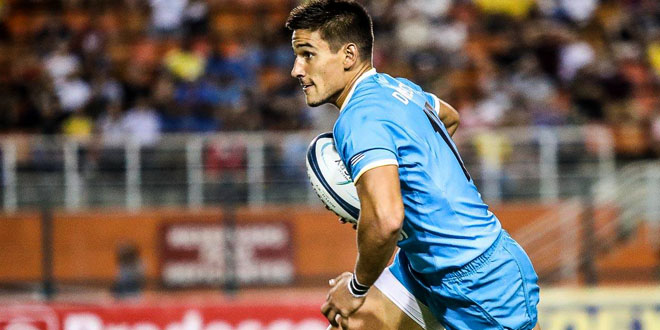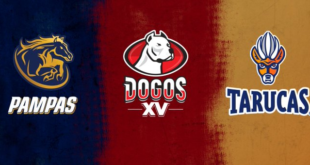South American professional rugby is coming in 2019, writes Ignacio Chans. The project is for an 8-team professional league in the region with it being the equivalent of Major League Rugby in North America.
Such an idea has only been dreamt about in the past. Yet with the coming together of unions the concept has become greatly facilitated. What was once impossible is now possible, success enabled from initiatives, notably the Americas Rugby Championship (ARC).
The vision has been described by Unión de Rugby del Uruguay (URU) President Sebastián Piñeyrúa. It is to have a franchise competition featuring eight teams, with them coming from Argentina, Brazil, Chile and Uruguay. He noted:
“We are confident that it will be a project supported by World Rugby, and by the countries from both the south and the north. In fact it starts in the north (Major League Rugby) this year. The idea is to have something similar, that would be a tournament of the Americas, which has teams from the north and south competition against each other”.
With the South American professional rugby competition the countries will be able to address what they have been seeking – a direct path way from club to international rugby.
A South American professional rugby competition would be highly popular with the ARC players. Both Brazil and Uruguay have sought a pathway to higher level competition, the possibility of the Currie Cup being one such example.
The Argentina XV is no different with the South African competition also having been discussed. Chile and Uruguay have both played in the Argentine national provincial championship. Brazil has also regularly prepared for international competition against Argentine opposition.
It would be a method in which those playing in the ARC would be able to elevate their levels yet it would be more than that. It would act to keep players in South America to ensure access to them for the ARC and at all other times for international duty and players would be able to concentrate on rugby.
Players have been requesting more from their unions. Francisco González Moller touched on complications Chile faces. He is currently playing club rugby in Australia and not for his country in the ARC.
At present Los Jaguares are fully professional. Players in the ARC are part-time professionals or are amateurs depending on the union. The proposed competition would change this.
At this stage it is not clear where the right teams would be based. It could be two in each of Argentina, Brazil, Chile and Uruguay or, alternatively, some could have one with another having more.
In the case of Uruguay two sides is very much realistic. The location of these sides is far from being clear. Montevideo would certainly have one team but possibly both. Alternatively a side could be based in the north, potentially in Paysandú or in the east in Punta del Este.
In Brazil São Paulo would be guaranteed a team. The question being whether it would be based in the city itself or in São José dos Campos, the heartland of Brazilian rugby. A second side could be in the south, potentially in Bento Gonçalves.
With one side in Chile it would be in Santiago. A second, if viable, would be further south. Arguments could be made for either Concepcion or Temuco to be the location.
Argentina could have anywhere from two to four teams. The same cities which have the PladAR High Performance Centers would all be looked at for teams. Work would be required to distinguish Los Jaguares as a national side from the prospective South American professional teams.
Los Jaguares are based in Buenos Aires and exclusively play there. The PladAR bases of Córdoba, Rosario, Mendoza, Salta and Tucumán would join Buenos Aires in being considered for teams.
In Argentina like the other three instances local government would factor in greatly. As is the case in home test matches councils are involved in the bidding stage.
What is for sure is that none of the four countries would be left out. Not only would all get teams but the teams could not be exclusive to their own nationality. Argentina’s extensively superior player base could see a fullback playing for a Brazilian side. Similarly an Uruguayan flanker could play for a Chilean team.
 Americas Rugby News Rugby news from across the Americas!
Americas Rugby News Rugby news from across the Americas!




